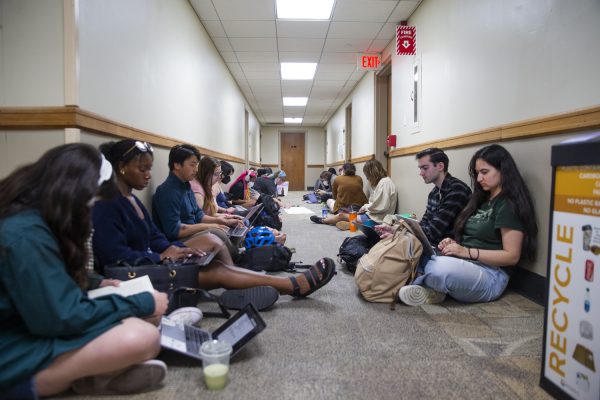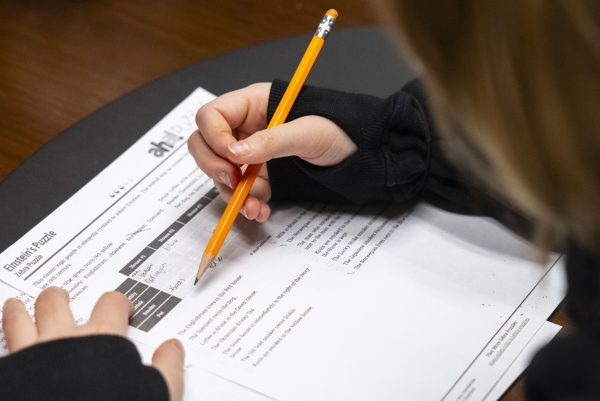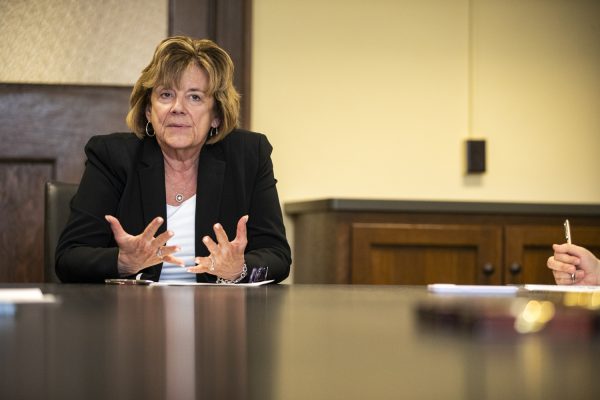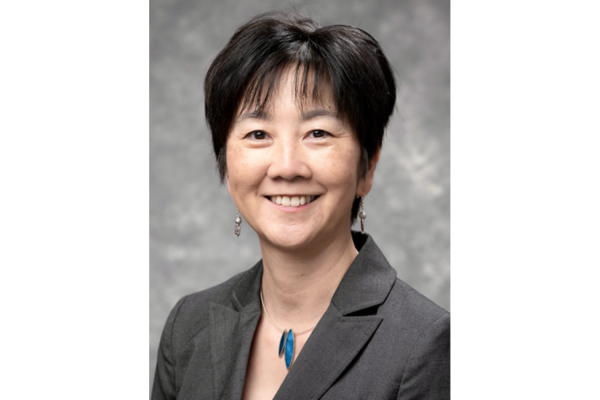Future tuition hike appears likely for the UI
UI president Bruce Harreld listens to a question during an one-on-one interview with two Daily Iowan reports in the JW Marriott Los Angeles L.A. Live Hotel on Wednesday, Dec. 30, 2015. The University’s legal name is the State University of Iowa but in 1964 the state Board of Regents approved using the University of Iowa for everyday use. (The Daily Iowan/Margaret Kispert)
September 9, 2016
Another tuition hike seems imminent after the state Board of Regents voted on Thursday to approve fiscal 2018 requests, a 2 percent increase in state appropriations from fiscal 2017.
The regents proposed a “dynamic” two-year budget plan, which will potentially lead to an additional tuition increase of 2 percent for resident undergraduate students for all regent institutions. For nonresident, graduate, and professional students, the rates will vary.
Decisions regarding tuition rates for the 2017-18 academic year are scheduled to take place during the October regents’ meeting.
According to the regents’ appropriations document, the UI has the lowest resident undergraduate tuition in its peer group and the second lowest undergraduate tuition in the Big Ten.
The Daily Iowan has previously reported that Senior Vice President for Finance and Operations Rod Lehnertz wrote in an email that state appropriations provide one-third of the UI budget; tuition provides most of the rest.
“While costs have not been escalating out of control, there has been a shift in who pays for it,” UI President Bruce Harreld said in an oral report at the meeting.
At the meeting, Harreld said in his discussions with families, they seek predictability in college finances.
This desire for predictability led the regents to implement a multi-year budget model, said Regent President Pro Tem Katie Mulholland.
“We want to maintain the quality and provide for the students who are already enrolled,” she said. “Right now, at this time, we really want to see that two-year plan. That will really, really help with planning and predictability for the parents and families … but also for the universities and special schools.”
While the regents and regent-school administrative leaders acknowledged students’ concerns over rising tuition costs, they also said they feel the predictability offered by the new budget model will provide students with peace of mind as they plan for their educational expenses.
“We want to provide as much predictability as possible to our students and their families,” Board of Regents President Bruce Rastetter said in a statement regarding appropriations released by the regents. “By going to this new model, students and parents will know tuition rates well in advance, and the state will know our thinking on funding for two years.”
Although much of the cost of funding higher education falls on students, Harreld suggested it is a shared effort among students and families, the state, and the UI to fund the university’s operations.
“We’ll do our fair share; we think the state needs to do its fair share, and hopefully … the students also will then contribute their fair share in a predictable way,” he said.















